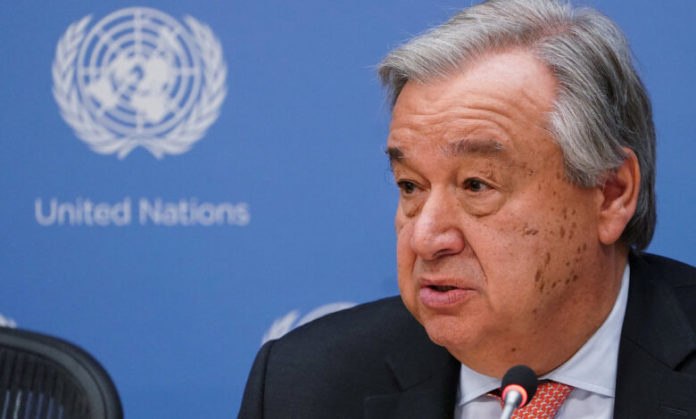UN Secretary-General Antonio Guterres has said that India’s contentious Citizenship Amendment Act may render a large number of Muslims stateless. Expressing concern over CAA and the proposed National Register of Citizens (NRC), he said it is necessary to do everything to prevent “statelessness” when a nationality law is changed.
Talking about this CAA and NRC, the UN chief, who was on a visit to Pakistan, said he was concerned because… “this is an area in which the relevant UN body is quite active”.
“The present High Commissioner for Refugees is quite active in this situation like many others like this. Because there is a risk of statelessness created by those national laws,” Guterres told Dawn News TV in an interview.
“It is absolutely essential when a nationality law is changed, the statelessness is prevented. Because when the basic right of anyone anywhere is to have a country that a person calls his, then everything should be done in order to avoid statelessness,” he said.
The new citizenship law passed by the Indian Parliament in December 2019 offers citizenship to non-Muslim persecuted religious minorities from Pakistan, Bangladesh, and Afghanistan.
After the enactment of the law, widespread protests erupted across the country over fears that it may marginalise the minority Muslim community.
The Indian government has maintained that the CAA is meant for minorities persecuted in three neighbouring countries due to their faith.
The government has called the issue an internal matter of the country.
On the other hand, the NRC has been prepared to identify genuine Indian citizens living in Assam since March 24, 1971, or before, and identify illegal Bangladeshi migrants in the state.
Out of 3.3 crore applicants, over 19 lakh people were excluded from the final NRC published on August 30 2019.
On Kashmir, Guterres said two reports by the UN High Commissioner on Kashmir played an important role in “clarifying exactly what is happening” there and “it is essential that these reports are taken seriously”.
During his Pakistan visit, the UN chief had offered to help India and Pakistan to resolve the long-pending Kashmir issue. But New Delhi rejected his offer, saying there is no role or scope for third-party mediation.
The already strained ties between India and Pakistan nose-dived after India revoked Jammu and Kashmir’s special status on August 5.




[…] Also Read: India’s Citizenship Amendment Act may leave Muslims stateless, says UN chief […]
[…] India’s Citizenship Amendment Act may leave Muslims stateless, says UN chief […]